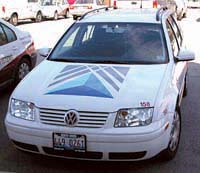
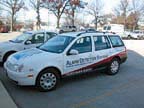
However, more important than this stereotypically brutish and rude reputation, the British white van man also represents the grounded, levelheaded, and street-smart everyman, whose finger is firmly on the pulse of contemporary issues.
In fact, the dominant British tabloid, The Sun, even has a recurring column in which the typical white van man shares his sage advice with the nation.
Yet where does the white van man turn for advice on white vans?
SDM asked a cadre of experts to provide tips on the best ways to equip, maintain, organize, and supervise installation vehicles.
SDM’s panel of experts includes the following: Bob Bonifas, president and CEO, Alarm Detection Systems Inc., Aurora, Ill.; Dave Hood, general manager, First Alarm, Aptos, Calif.; David Kahl, owner and director of operations, A.C. Daughtry Inc., Montville, N.J.; and Marty McMillan, president, Intelli-tec Security Services, Westbury, N.Y.

BONIFAS: Cell phones and soon some type of electronic computer, e.g., notebook, handheld, etc.
HOOD: Some of our techs are equipped with notebook computers, and all of them have Nextel phones.
KAHL: All of our technicians use Nextel radios for communication with our dispatcher and service department throughout the day. They are also able to communicate with each other to discuss job details.
MCMILLAN: Our trucks are equipped with D/C inverters to provide A/C power on site if no electric is available
SDM: Do you use GPS monitoring for keeping tabs on your trucks?
MCMILLAN: Yes, and it’s the best money we ever spent. GPS saves on overtime, and it lets you really know what your good men are doing. You will be surprised!
KAHL: Not at this time; however, our new phones do have that feature if we choose to enable it.
HOOD: Yes, we replaced all our Nextel phones with new ones with GPS capabilities. We use these phones to track vehicles, and also the phones are equipped with timekeeping software, so the techs can punch in and out via the phones.
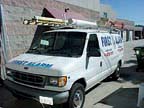
BONIFAS: The best method is a managed standard inventory for each vehicle class, e.g., camera tech, alarm service tech, alarm installation tech, etc.
HOOD: We use full size vans and keep a large stock of equipment on each vehicle. Techs can request stock replenishment at any time, and the vans are inventoried regularly.
SDM: How do you make sure your trucks are being maintained when they need it?
HOOD: We use a vehicle maintenance log system and rely on quick lube-type service centers for most of the routine maintenance.
MCMILLAN: We conduct weekly inspections and scheduled oil changes. The drivers fill out forms on their weekly time sheets if anything else is needed.
KAHL: Our lead technicians are assigned a fully equipped van. On Fridays, each technician is responsible for recording vehicle mileage on a vehicle maintenance sheet. On Mondays, those reports are forwarded to our mechanic, who schedules and rotates vehicles for periodic maintenance based on mileage intervals. We have a lead technician whose morning duties include monitoring that process.
BONIFAS: We have an in-house mechanic who tracks all vehicle mileage and does the oil changes, tune-ups, tires and includes new engines and transmissions when required.
SDM: What restrictions do you place on your drivers as far as their use of the trucks and where they are allowed to drive?
BONIFAS: In most cases, our drivers are limited to trips to and from jobs and to and from home. Our vehicles are not for personal use.
KAHL: Our technicians drive our vehicles to and from work and to the job site each day. They are only used after hours for emergency services.
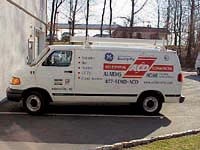
BONIFAS: We let most technicians take their vehicles home overnight. But they go directly home from the job site in the afternoon and directly to their first job in the morning. Why? Because it’s more efficient. Some who live a great distance from our primary customer base are not allowed to take the vehicle home.
HOOD: We consider it a major benefit to have a van that can be taken home. As an additional savings consideration, we don’t have to allocate space to park 35 vans every night.
KAHL: Our technicians keep the vehicles overnight because they are on call for required emergency service. In most cases, this leads to a better response time for our customer base.
SDM: What is your company’s policy in case of an accident?
HOOD: Accidents are reported to our safety coordinator immediately, and the tech must fill out a report.
MCMILLAN: The individual involved in the accident must fill out an accident report and take pictures with a disposable camera.
BONIFAS: Drivers should call the office immediately to report an accident. Also, whether insured on the job or in a vehicle accident – with or without injury – they need to report to a medical facility as soon as reasonably possible for a urine test.
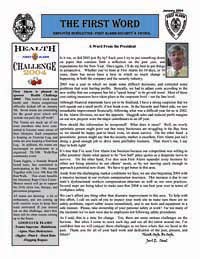
HOOD: Traffic violations and parking tickets are always the employee’s responsibility.
MCMILLAN: If a tech parks where he shouldn’t, such as in front of a fire hydrant or in front of a bus stop, then they must pay. Otherwise, we pay, and in New York City, you can almost always guarantee a ticket or two per day at $115 each.
SDM: Should you buy or lease your trucks? Which is more cost-effective?
HOOD: We believe that owning the vehicles is a better option, but we debate the issue from time to time. We invest several thousand dollars into each new vehicle (decals, racks, equipment, etc.), which makes it very difficult to frequently turn over the vehicles. On the other hand, since we own these vehicles, we occasionally run them past their “useful life†and incur higher maintenance costs.
KAHL: We purchase our vehicles. Our approach is that a properly maintained vehicle will cost us much less than a leased vehicle. As a result we are able to keep the vehicles in our fleet running well in excess of 100,000 miles.
BONIFAS: We buy all of our vehicles, but I know a few sizeable alarm companies who lease because they are in a state where insurance rates are excessive and the leasing company insurance justifies leasing.
MCMILLAN: We lease because it’s a 100 percent write-off, even though mileage overages are high. We rotate trucks because repairs get costly as they age.
SDM: After how many miles do you replace a truck, and what do you do with the old one?
MCMILLAN: Between 100,000 or 130,000 miles. We return the vehicles to the dealer at the end of the lease, either three or four years.
HOOD: We replace a truck around the 140,000 mile mark. We sell them to our employees, friends, and associates by advertising our vehicles in our company newsletter.
BONIFAS: For service and installation cars, we get 250,000 miles on average, and vans average 200,000 miles. All of our service and half of our installation vehicles are Volkswagen Jetta cars or station wagons, and all 75 are diesel. Diesel is much cheaper to drive and maintain, and the engines can go 250,000 miles. We drive all vehicles until they drop: that is, until they aren’t worth repairing.